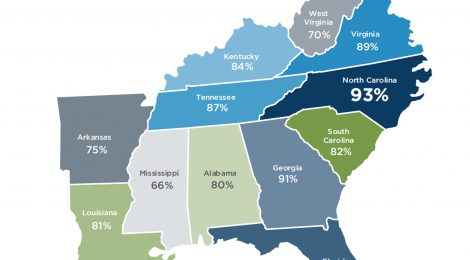by
North Carolina Governor Pat McCrory has released North Carolina’s updated State Broadband Plan, which sets the goal of universal statewide access by 2021. The governor claims that to date nearly 65 percent of classrooms are connected, and has committed to connecting 100 percent of classrooms by 2018.
According to FCC data, 93 percent of North Carolina is connected through a combination of anchor institution networks, private providers, and municipal broadband. However, the plan shows that more work needs to be done to connect rural communities.
The report appears to take a position against municipal broadband networks like the ones that already exist in Wilson and Salisbury and instead calls on rural areas and municipalities to form partnerships with private sector providers. As CivSource has reported time and again, the majority of those private sector providers have indicated little to no support for connecting rural and small towns where the subscriber base is likely to remain small.
The North Carolina legislature has already tried to pass laws that would prohibit the development of other municipal broadband networks in the state, however, that effort was pre-empted by the Federal Communications Commission. North Carolina is now suing the FCC over its involvement. (Listen to the oral arguments here.) The suit has the support of telecom companies, which are pushing back against federal supervision, especially if it makes them have to compete for business instead of maintaining monopolies.








